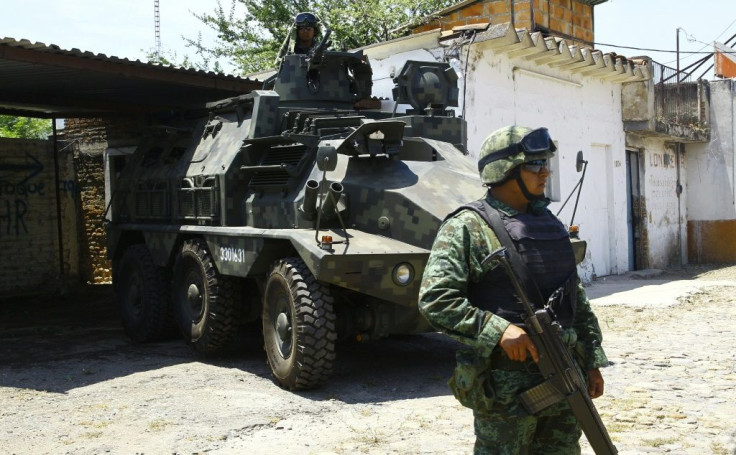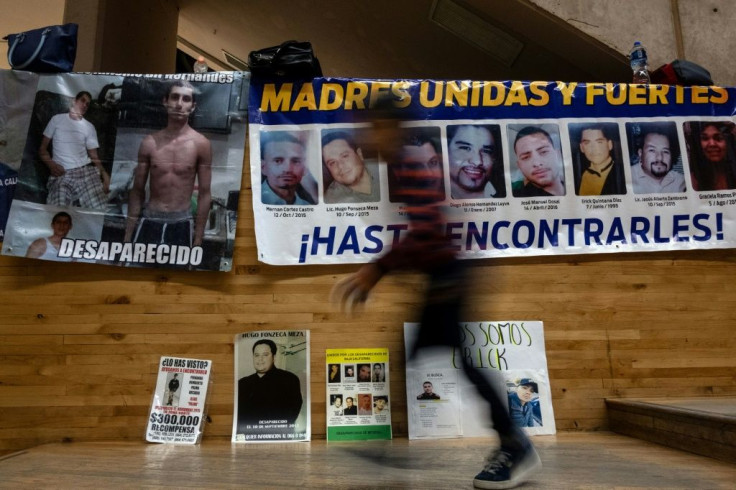US-Mexico Drug War Ripe For Rethink Under Biden, Experts Say
President-elect Joe Biden's arrival in the White House is expected to bring a shake-up of US-Mexican cooperation in a bloody war on drugs that has failed to rein in powerful cartels, experts say.
Mexico has seen more than 300,000 murders since deploying the military in the anti-narcotics fight in 2006, most of them blamed on criminal gangs, while drugs continue to flood across its northern border.
Outgoing US President Donald Trump has been a staunch supporter of tough action against the drug lords, calling for a "war" on the cartels.
Biden's Democrats, however, "are more concerned about militarizing the cooperation and the human rights violations that often result," said Michael Shifter, president of the Washington-based think tank Inter-American Dialogue.

He believes that Biden will focus not only on tackling drug trafficking but also on a new approach to contain illegal migration from Central America and Mexico.
The International Crisis Group (ICG) think tank argues that Washington must stop pushing Mexico to unleash ever more military force against criminal gangs.
The United States should change course and recognize that "reliance on iron-fist militarization has proven a failure," it said in a report ahead of the November election won by Biden.

For years security cooperation has been a cornerstone of US-Mexican joint efforts to curb drug trafficking.
But now Mexico wants to move away from the Merida Initiative, a program aimed at combating drug smuggling with US military firepower, technical support and training for security forces.
President Andres Manuel Lopez Obrador says he would rather the United States invest in economic development in Mexico and Central America.
Under the Merida Initiative, the United States has given Mexico about $3 billion since 2008 for law enforcement training and equipment such as Black Hawk helicopters.

At the same time, US authorities have focused on helping Mexico to arrest drug kingpins like Joaquin "El Chapo" Guzman and send them to the United States to face trial.
But the Merida Initiative is now "in urgent need of reassessment," a US congressional commission said in a report last month, calling for "a new strategic framework."
US-Mexican security cooperation "has neither protected US citizens from toxic illegal drugs nor Mexicans from vicious criminal gangs," the Western Hemisphere Drug Policy Commission said.
"US and Mexican law enforcement should explore more targeted approaches that focus on the most dangerous organizations, including those that smuggle (the potent synthetic opioid) fentanyl into the United States," the report said.
Mexico, meanwhile, wants the United States to crack down on illegal firearms trafficking in the opposite direction that generates millions of dollars in profits a year for the American gun industry.
Trust between the neighbors was shaken by the arrest of former Mexican defense minister Salvador Cienfuegos in October at a Los Angeles airport for alleged drug trafficking.
As a result, "we could see less activity of US agencies in Mexico and fewer arrests," said ICG analyst Falko Ernst.
Lopez Obrador complained that the US Drug Enforcement Administration (DEA) had acted behind his back in the case.
After diplomatic pressure from Mexico, US authorities dropped the charges and sent Cienfuegos home for possible prosecution.
Even so, Mexican lawmakers subsequently approved security law reforms pushed by Lopez Obrador stripping foreign agents of diplomatic immunity, to the dismay of US authorities.
Shifter said the new security law "marks a setback in joint counter narcotics efforts and will likely complicate bilateral relations."
The changes also require Mexican officials to report any contact with foreign agents -- a rule seen as unrealistic by the US side.
"Who's going to want to make a report for every communication they have with a DEA agent?" said Mike Vigil, the organization's former director of international operations.
© Copyright AFP {{Year}}. All rights reserved.





















